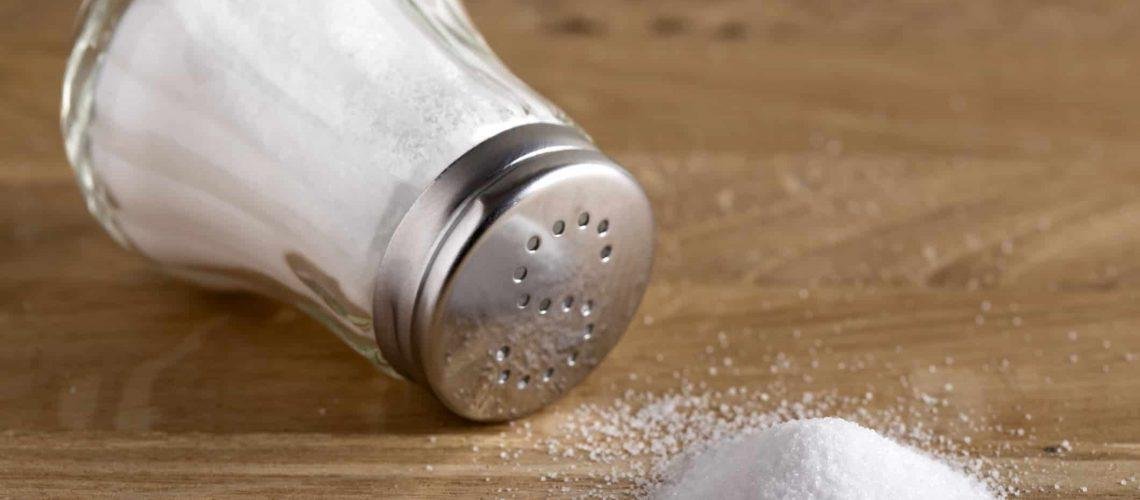Health Essentials
Constipation; ‘diarrhoea’ of information on this

Constipation can contribute to abdominal pain and bloating
I have been wondering why I have this urge to write about constipation soon after the month of May during which we indulged in issues of blood pressure. This may have been influenced by the frequent complaints I hear day in day out about constipation. Do all these complaints qualify to be described as constipation?
Many people would rather not talk about constipation but if you have suffered from a bout or two you will definitely appreciate how painful and frustrating it may be. There is this other group of people who is obsessed with constipation and believes that all their problems will be solved once they can move their bowels frequently. Their bad mood is blamed on constipation, poor appetite also assumed to be from constipation and constipation cannot be excluded from any bout of headache they experience. This category of people swears by enemas and some of the concoctions they resort to could corrode the best of intestines.
Constipation may present as infrequent bowel movements or extremely hard stools that may cause unbearable pain. Periodic constipation may be relieved by the appropriate diet, proper hydration and exercise but chronic constipation is often more worrying and may require medical attention. Do not force yourself to be someone else, as individuals our bowel movements vary. Some may go up to three times a day while for others three times a week is just right. Listen to your body. It may appear absurd that we are discussing constipation at a time that Accra is flooded with diarrhoea stools and scattered black bags but some people may find this life-saving.
We will focus on chronic constipation, which occurs when we experience two or more of the following for at least three months;
• Less than three bowel movements in a week
• Hard stools that are difficult to pass
• Straining to move bowel
• Abdominal discomfort and bloating
• Frequent use of enemas and laxatives
• A sensation that your bowel is never really empty.
COMMON CAUSES OF CONSTIPATION
• Lack of exercise
– Regular exercise promotes muscle contraction in walls of the intestine.
• Poor water or fluid intake
– Drink about two litres of water a day
• Poor diet
– Ensure you have a lot of fibre in your meals
– Fruits and vegetables a must and go easy on refined foods such as polished rice.
• Change in routine
– Change in diet and time for meals as well as a lack of proper facilities to move bowel can all set the stage for constipation.
• Ignoring the urge
– If you have to go get the right place and go. Ignoring the urge frequently could lead to constipation but can we blame those who ignore the urge because they have to pay money for every single episode?
• Overuse of laxatives
– This is akin to teaching your bowel to wait for assistance before it performs.
• Certain medical conditions
– Medical conditions such as diabetes, anxiety and depression, abnormal potassium and calcium levels and an underactive thyroid have all been blamed.
• Bowel Disease
– Several of these and may include irritable bowel syndrome and tumours
• Pregnancy
– Changes in hormones or pressure on the intestines from the foetus may cause constipation.
• Side effect of some medication
– Some pain medicines and even some vitamins and supplements may have constipation as a side effect.
• Local pain
– Pain around the anus from infected haemorrhoids or cuts may lead one to suppress the urge.
For some of us the problem may be simpler than we can imagine; our intake is so little the body absorbs virtually everything. This scenario is very common in exclusively breast fed babies and may not be classified as constipation.
DO NOT IGNORE THE FOLLOWING
Quite often we delay seeking help for constipation but whenever you have any of the following it is better to act fast:
• New constipation
• Fever
• Rectal pain
• Bleeding from the anus
• Anaemia
• Abdominal pain with vomiting
• Weight loss
• Family history of colon cancer or other bowel disease.
THE UGLY SIDE OF CONSTIPATION
Chronic constipation may lead to developing haemorrhoids which may bleed or become painful, tears in anal tissue from hard stools that worsen the constipation and straining may even push rectal tissue out through the anus and may require surgical repair.
MANAGEMENT
Prevention is key and the focus should be on lifestyle modification. In some cases especially involving adults, health professionals may need to manually evacuate impacted stools from the rectum. Medications may be needed or as the causes showed one may have to stop taking some medicines and also certain conditions will need to be treated to stop the constipation.
The least we should all do is to eat meals that are rich in fibre and as stated earlier it includes fruits and vegetables, bran, nuts and seeds. Do not forget to drink adequate amounts of water or other healthy fluids and make sure you exercise almost every day to help speed the transportation of waste through the intestine. This is also a bonus for those who exercise regularly because they get some protection from colon cancer. Last but not least; establish a routine and whenever you feel the urge answer in a civilised way and place.
AS ALWAYS LAUGH OFTEN, ENSURE HYGIENE, WALK AND PRAY EVERYDAY AND REMEMBER IT’S A PRICELESS GIFT TO KNOW YOUR NUMBERS (blood sugar, blood pressure, blood cholesterol, BMI)
Dr. Kojo Cobba Essel
Health Essentials Ltd/ Mobissel
(dressel@healthessentialsgh.com)
*Dr. Essel is a medical doctor, holds an MBA and is ISSA certified in exercise therapy, fitness nutrition and corrective exercise. He is the author of the award-winning book, ‘Unravelling The Essentials of Health & Wealth.’
THOUGHT FOR THE WEEK – “although chest pain is commonly attributed to heart disease, many people with heart disease say they experience a vague discomfort for which PAIN doesn’t seem to be an adequate description”
References:
• Chronic Constipation – Harvard Medical School (Patient Education Center) – leaflet
By Dr. Kojo Cobba Essel
Health Essentials
Stop the silent killer: Breaking myths to prevent sudden deaths from high blood pressure

Every week in Ghana, a life is cut short, sometimes in the middle of traffic, sometimes at a desk, sometimes in the quiet of sleep. A father doesn’t come home. A sister doesn’t wake up.
A colleague slumps at work and never gets back up. Families are left asking why and you will hear statements like what happened? Was he sick? I just saw him, he has not shown signs of ailment, what a shock and so on.
Behind many of these sudden tragedies is a quiet, invisible force: high blood pressure, or hypertension. It doesn’t scream for attention. It doesn’t always show symptoms. But it tightens its grip silently on hearts, on brains, on lives.
This is not just a medical issue. It is a human one, it is about behaviour, it is about ignorance and it is about lifestyle. It is the grandmother who never got her blood pressure checked because she felt “fine.”
It is the taxi driver, the statistician, the nurse who ignored his pounding headaches, thinking it was just stress. It is the young lady who was so vibrant at church and no one suspected she could fall and die. Because it shows no symptoms.
The alarming numbers we cannot ignore
The Ghana’s 2023 STEPS Survey on Non-Communicable Diseases conducted by The World Health Organisation, Ghana Health Service and Ghana Statistical Service has revealed findings that should push for action.
According to the report, 21.7 per cent of adults aged 18 to 69 in Ghana are living with high blood pressure. Even more alarming is that 51.1 per cent of those with hypertension are not aware of their condition.
This means that more than half of the people with dangerously high blood pressure are walking around without knowing it until tragedy strikes. That is the real danger of this silent killer.
Literature has shown that hypertension is preventable and manageable. But only if we treat it like the threat, it is. That means regular checkups; that means understanding the risks and that means talking about it openly, urgently, and with compassion.
The deadly power of myths
Why are so many Ghanaians untested or untreated? Is it out of ignorance, or the pervasive myths about hypertension and its treatment?
• Some believe blood pressure medicine “weakens the body” or “shortens life.”
• Some believe blood pressure medicine “weakens the penis and kills sexual drive”
• Others think once you start taking medication, you are “dependent for life.”
• Many say, “I feel fine, so I must be fine.”
These beliefs are not only false, but they are also deadly. The truth, according to the World Health Organisation, is that effective treatment can reduce the risk of stroke by up to 40 per cent and heart attack by 25 per cent. Avoiding treatment does not prevent dependence rather, it accelerates death.
As Dr Patrick Kuma-Aboagye, former Director-General of the Ghana Health Service, has noted, “Hypertension is preventable and treatable, but our biggest battle is misinformation and late detection.”
A national conversation we must have
This is not just a health issue it is a national emergency. Sudden deaths rob families of breadwinners, communities of leaders, and the country of its productivity. In every obituary notice caused by hypertension, there is a story of loss that could have been prevented with a simple blood pressure check and treatment.
Behind every life saved is a moment of awareness, a decision to act, therefore, the media must rise to the challenge.
Radio and television programmes should dedicate regular airtime to demystify hypertension. Newspapers should carry survivor stories, expert interviews, and practical lifestyle advice.
Social media influencers should spread awareness in local languages, reaching young people who assume they are safe.
Public health experts also have a responsibility. Screening must move beyond hospitals into churches, mosques, markets, schools, and workplaces. People should not have to wait for illness to know their BP status.
What we can do together
To stop the silent killer, we need a collective response:
• Check your blood pressure regularly, even if you feel healthy.
• Follow medical advice faithfully if diagnosed because treatment saves lives.
• For healthy lifestyle, eat less salt, reduce alcohol, reduce starchy, fat and oil intake, avoid smoking, and exercise at least 30 minutes daily.
• Encourage one another talk about blood pressure in families, communities, and workplaces.
Conclusion: Silence is killing us
What kills is not just the disease, but the silence, fear, and myths that surround it. The STEPS 2023 report has sounded the alarm: nearly one in five Ghanaian adults has high blood pressure, and more than half don’t even know it.
This is the time for bold conversation, public education, and decisive action. The media, health professionals, policymakers, and ordinary citizens must join forces to expose the myths, spread the facts, and save lives. Let us not wait for another headline.
Let us make blood pressure a national conversation before it becomes a personal tragedy. With awareness, treatment, and collective will, Ghana can stop the silence and stop the sudden deaths from the silent killer.
Written by: Ansah Moses Teye-Akam – Senior Statistician, Sociologist/Scientific Research Organisational Expert.
Email: moses.ansah@ statsghana.gov.gh/ansahmosesteyeakam@ gmail.com.gh Contact: 0244539034 / 0204359034
Join our WhatsApp Channel now!
https://whatsapp.com/channel/0029VbBElzjInlqHhl1aTU27
Health Essentials
Your heart is precious ‘don’t miss a beat’

On September 29 of each year since 2000, we mark World Heart Day without fail but it appears we find a comfortable place to doze off after that, leaving the world’s number one killer to continue its havoc.
This year, the theme “Don’t Miss a Beat” focuses on “the importance of heart and blood vessel (cardiovascular) health by emphasizing how losing someone to heart disease also means losing irreplaceable moments in life. It encourages individuals to prioritise heart health, not to miss important life events, and supports building a world with fewer deaths and more healthy hearts.”
Together with its members, the World Heart Federation spreads the news that at least 80 per cent of premature deaths from heart disease and stroke could be avoided if the main risk factors, tobacco, unhealthy diet and physical inactivity, are controlled.
Stop smoking and prevent others from smoking
a. Once upon a time, puffing the smoke of death was fashionable (maybe from a lack of adequate knowledge?) but certainly in 2025, a healthy lifestyle is in vogue. If you do not smoke, why should you inhale smoke from others (passive smoking)?
Eat more fresh fruits and vegetables
a. In Ghana and other developing countries, we often want something that will fill our stomach and stay there for as long as possible. Why do you think “concrete” is so revered in this great land of ours? Start the day with a hefty dose and top it up with frequent gulps of water. We always come up with 1001 reasons why eating fruits could lead to instant “pocketitis” and may signal the beginning of a third world war in many homes. We love to get into unnecessary arguments about whether fruits should be eaten before or after meals etc., just eat them!
b. We probably should consider buying fruits when they are in season since they are much cheaper at the time
c. Kontomire, cassava leaves and garden eggs, are great vegetables that will not cost you an arm and a leg. You also have the option of cabbage, lettuce etc.
d. The option of having a small garden is great but many of us do not have the luxury of space to do that.
Eat a healthy diet
a. LOW in saturated fats
i. Saturated fats can be found in animal products such as meat, milk, cheese and butter but be careful about plant products such as palm oil. Moderation is ALWAYS key.
b. LOW in refined carbohydrates
i. Our tongues have the power to make or unmake us – talking and eating are two examples of paths that can spell doom. We love sugar, perfumed rice (white), white flour, pasta (macaroni) and white bread and will make excuses to skip brown rice for instance.
c. LOW in salt
i.This is as simple as it is stated. Reduce the salt you put in food. Avoid adding salt to already cooked food. Flee from salted snacks and watch artificial flavouring.
Increase levels of physical activity
a. This is no drill on exercising but sitting on the sofa all evening or sitting at your desk for hours on end has not yet produced a healthy being. Household chores, gardening, walking even if it means while on the phone, using the stairs instead of the elevator all add up. The more you move the better for you. Dear friend, moving the TV remote does not account for much but maybe if you could walk to the TV to change channels or make other modifications then you would be on the right path.
Regular medical examinations to assess heart health
a. Beware of the modifiable risk factors for heart and blood vessels and check them often
i. Uncontrolled hypertension, uncontrolled diabetes, abnormal cholesterol, obesity, physical inactivity and smoking
ii. Get evaluated for sleep apnoea especially if your snore could bring the walls down
Manage Stress
• Check the quality and quantity (duration) of your sleep and rest
• Be happy
• Spend time with people who make you laugh and those who have positive vibes. The pessimists will drain your energy.
Changing these habits and behaviours is possible but we need to be committed. Whatever we are today is by the grace of God and the choices we made before today. Make healthy choices that will protect your heart, and it will continue to perform well for many years to come.
Today many people have died from a heart disease, and others have gained HEART HEALTH, which group would you rather join? Wouldn’t you spend quality time with family and friends for many years rather than being bedridden or spend precious endless hours in hospitals trying to fix our heart and blood vessels.
We have the power to make the right choice and stick to it.
AS ALWAYS LAUGH OFTEN, ENSURE HYGIENE, WALK AND PRAY EVERYDAY AND REMEMBER IT’S A PRICELESS GIFT TO KNOW YOUR NUMBERS (blood sugar, blood pressure, blood cholesterol, BMI)
Dr. Kojo Cobba Essel
Health Essentials Ltd/Medics Clinic
(dressel@healthessentialsgh.com)
Dr. Essel is a Medical Doctor with a keen interest in Lifestyle Medicine, He holds an MBA and is an ISSA Specialist in Exercise Therapy, Fitness Nutrition and Corrective Exercise. He is the author of the award-winning book, ‘Unravelling The Essentials of Health & Wealth.
Thought for the week – “You have the opportunity to have a Heart Health Assessment at The Medics Clinic, Tse Addo from now through Saturday 4th October. Call 055-341- 1221 to set up an appointment or simply walk-in.”
References:
1. World Heart Federation Website
2. The Ten Commandments for A Healthy & Enjoyable Life: Dr Kojo Essel
By Dr Kojo Essel






